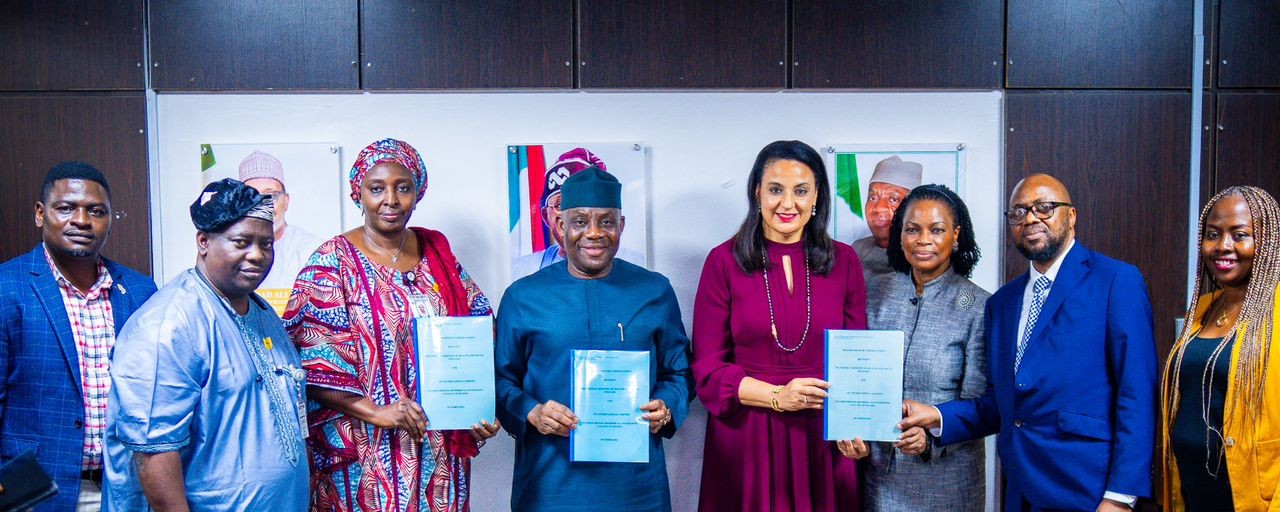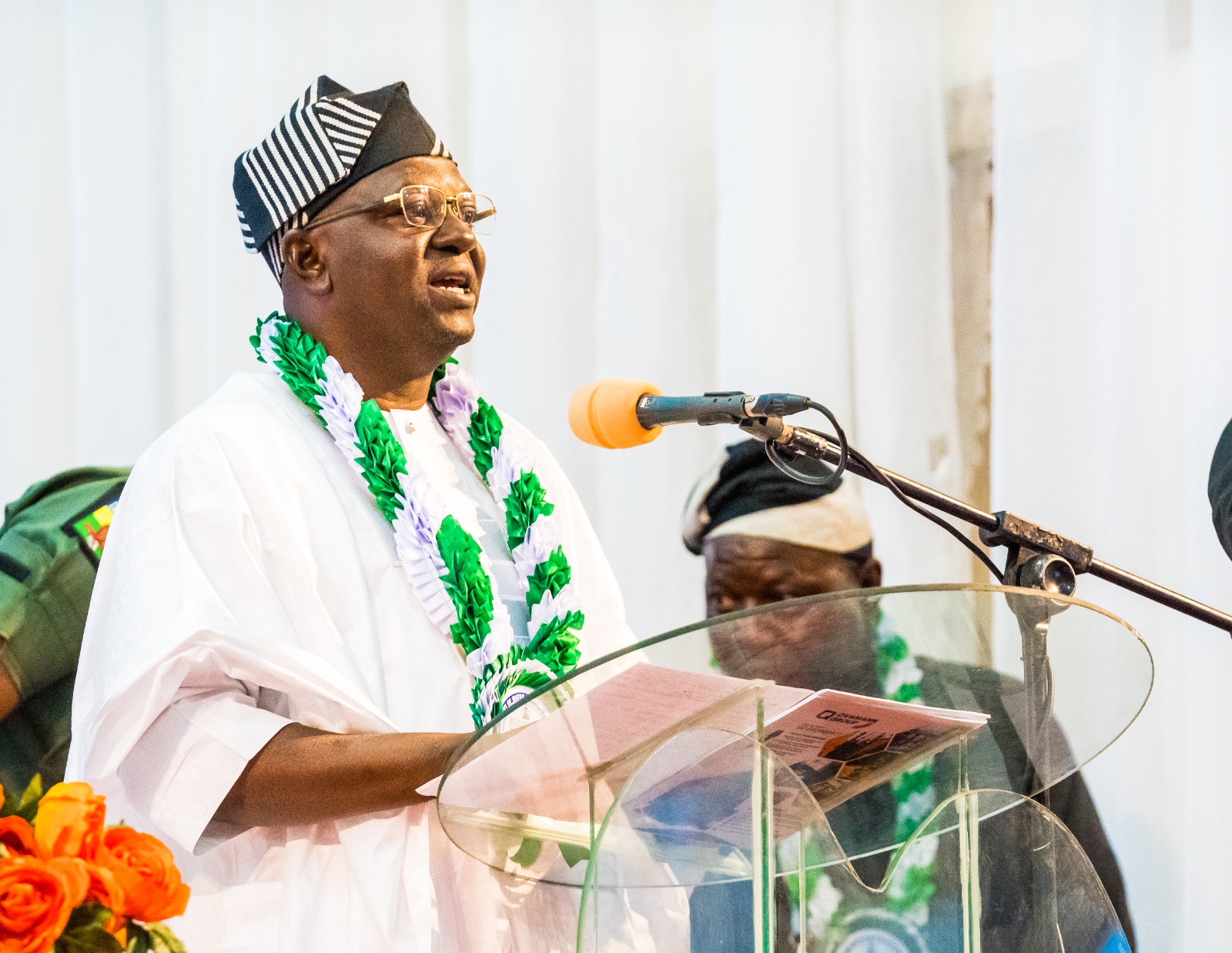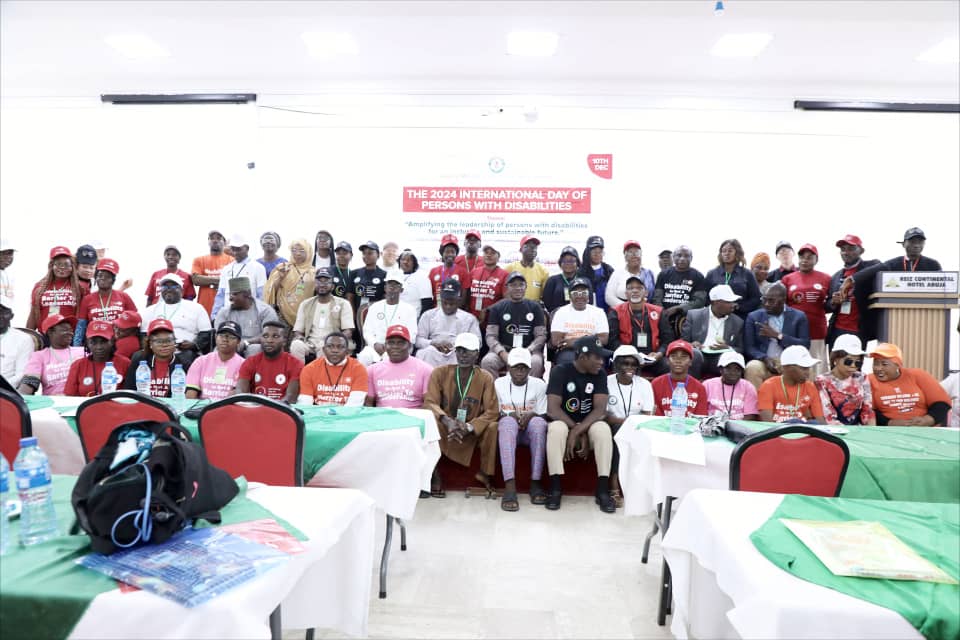
In a significant advent to augment the capacity of Schools of Bio-Medical Engineering, the Federal Ministry of Health & Social Welfare has entered into a Memorandum of Understanding (MoU) aimed at deepening and strengthening the nation’s healthcare systems.
The realization of this initiative underscores the commitment of President Bola Ahmed Tinubu GCFR to enhance the health sector and its infrastructure as a pivotal driver of human capital development.
Dr. Tunji Alausa, the Honourable Minister of State for Health & Social Welfare, disclosed this milestone during the signing of a Memorandum of Understanding (MoU) between the Ministry, GE HealthCare, and JNCI Ltd, representing the five Schools of Biomedical Engineering, at the Ministry’s headquarters in Abuja.
Expounding further, the Honourable Minister underscored the pivotal and intentional measures that were considered and put into effect, culminating in the signing of the Memorandum to enhance the training capacity of the students.
Dr. Alausa emphasized curriculum development, accreditation of the schools for OND and HND programs, and funding as essential measures to counter the declining number of Biomedical engineers in the country and bolster their infrastructure.
“The journey towards signing the MoU commenced long ago with a series of meetings and diagnostic studies to identify the needs of our Biomedical Engineering Schools. We have undertaken curriculum development, and we are grateful to GEHealthCare and JNCI for stepping in to enhance our curriculum,” he added.
Discussing the opportunities and tangible benefits stemming from the capacity-building program, Dr. Alausa stressed that engineers from the five Biomedical Engineering Schools will receive training to serve as bio-medical engineers.
“We have also made strides in accrediting the schools for HND, not just OND. We are approaching this in a deliberate and strategic manner to ensure that engineers are equipped to work as Biomedical Engineers. By expanding the opportunities available to millions of young men and women, we aim to increase capacity, provide more training opportunities, and enable young individuals to pursue degrees in OND and HND as Biomedical Engineers. As they emerge from these programs, they can be confident in their abilities to fulfill their roles. This, in turn, aids us as an institution and as a society in reducing the overall cost of care,” the Minister reaffirmed.
To guarantee the sustainability of the schools’ operations, the Minister highlighted that the Ministry will establish Economic Recovery and Growth Plan (ERGP) codes to facilitate a streamlined process for budgetary allocations in the 2025 fiscal year for the schools. The Honourable Minister commended both GE Healthcare, JNCI, and the Global Fund for their commitment to training the students.
Earlier in his remarks, the Permanent Secretary, Daju Kachollom mni, lauded the capacity-building initiative, emphasizing that it is a continuation of the Ministry’s efforts to revitalize the health sector for optimal service delivery to the populace.
In their statements, the Managing Director of JNCI, Mrs. Claire Omatseye, and the General Manager of GEHealthcare, Dr. George Uduku, affirmed that their organizations align with the current administration’s vision to enhance and elevate healthcare delivery systems in the country.
They emphasized that the signing of the MoU signifies their dedication to training five students from each Biomedical school of engineering in Enugu, Maiduguri, Edo, Zaria, and Lagos.





